- Theatre: Accidental Death of An Anarchist
- Theatre: Ein Komisches Talent
- Theatre: Gaslight®
- Theatre: Hansard
- Theatre: Home, I'm Darling
- Theatre: How to Succeed in Business...
- Theatre: I Love You, You're Perfect, Now Change
- Events (ticketed): Quiz Night 2025
- Theatre: The Cat's Meow
- Theatre: The Crucible
- Theatre: The Duchess of Malfi
- Theatre: The Glad Game
- Theatre: The Last Noel
- Theatre: The Prince
- Theatre: The Revlon Girl
- Theatre: Things I Know To Be True
- Theatre: Uncle Vanya
- Auditions: Audition for The Crucible
- Auditions: Audition for The Last Noel
- Auditions: Audition for Youth Theatre
- Auditions: Audition for Youth Theatre
- Auditions: Audition for The Cat's Meow
- Auditions: Audition for Things I Know To Be True
- Auditions: Audition for The Glad Game
- Auditions: Audition For Uncle Vanya
- Auditions: Audition for Hansard
- Auditions: Audition for The Duchess of Malfi
- Auditions: Audition for Accidental Death of An Anarchist
- Auditions: Audition for How To Succeed In Business...
- Lunchtime Theatre: Review of the Year
- Open Evenings: Open Evening
- Open Evenings: Open Day
- Open Evenings: Open Day
- Socials: Quiz Night
- News: NANDA Awards 2025
- News: Youth Theatre Shines at NANDA Youth Fest...
- News: 2025/26 Season
- News: Under the Limelight: Backstage at the Vo...
- News: Plea for century-old theatre after drop ...
- News: 100-year-old Nottingham theatre ... laun...
- News: Lydia Marchant Came to Visit
- News: NANDA Awards 2024
- News: Discount Car Parking Offer
- News: 2024/25 Season
- News: Emmy win for our patron Matthew Macfadye...
- News: Golden Globe win for our patron Matthew ...
- News: Discount Food Offer
- News: NANDA Awards 2023
- News: 2023/24 Season
- News: Discount Car Parking Offer
- News: Lace Market Youth Theatre on the town...
- News: NANDA Awards 2022
- News: The Queen’s Award for Voluntary Service
- News: 2022/23 Season
- News: Discount Ticket Offer
- News: Covid Precautions
- News: 2021/22 Season
- News: A Virtual Vanya
- News: Nottingham Playhouse Home Grown Bursary
- News: NANDA Awards 2020
- News: Coronavirus (COVID-19): Season Cancellat...
- News: 2020/21 Season
- News: Coronavirus (COVID-19): Season Postponem...
- News: Sad and Amazingly Funny
- News: Absurd but relevant
- News: Where Are They Now?
- News: Foyer Refurbishment
- News: NANDA Awards 2019
- News: Youth Theatre win at NANDA!
- News: Hannah and Hanna on tour
- News: 2019/20 Season
- News: Adam Penford Visit
- News: The Big Wardrobe Move - Part 1
- News: Lace Market Theatre On Tour
- News: Henry, 14, shows the desire to step in a...
- News: New Wardrobe Premises
- News: Auditorium Refurbishment 2018
- News: NANDA Awards 2018
- News: Auditorium Refurbishment
- News: Remember when women were seen as 'little...
- News: Nanda Youth Festival
- News: 2018/19 Season
- News: World War II play loved by Churchill...
- News: Modern take on Charles Dickens' horror s...
- News: Oscar Wilde's An Ideal Husband at the La...
- News: Shocking true story of last woman to be ...
- News: Alan Bennett classic The History Boys to...
- News: Pride and Prejudice at the Playhouse?
- News: Launch of New Bar
- News: Is Guys and Dolls the best ever Musical?
- News: Success at NANDA
- News: LMT to Host World Premiere of New Englis...
- News: 20th Century masterpiece...
- News: 2017/18 Season
- News: Terry Pratchett's Carpe Jugulum to be pe...
- News: Comedy classic The Ladykillers will be s...
- News: West End hit that became Meryl Streep fi...
- News: Nottingham theatre kicks off 2017 with m...
- News: An alternative to panto...
- News: The Brontë sisters were chick-lit pionee...
- News: The Weirdest Title of Any Show You'll Se...
- News: Telling Tales...
- News: Love & Death
- News: Exhibition in the Studio
- News: Latest Sound Upgrades
- News: Success at NANDA
- News: Success at NANDA Youth Festival
- News: Steve Parry: A Tribute
- News: Lace Market Theatre on Tour 2016
- News: James Dean naked and 'lots of pretty lad...
- News: 2016/17 Season
- News: 2000 Facebook Likes!
- News: Art Exhibition During "Beautiful Th...
- News: Noel Coward comedy is Lace Market Theatr...
- News: Art Exhibition During "Present Laug...
- News: Discount Food Offer
- News: Art Exhibition During "The Pitmen P...
- News: New Roof!
- News: In August the Lace Market Theatre Goes D...
- News: Good Deeds Notts: A stroke of luck as Jo...
- News: Happy Jack: On Tour
- News: Success at NANDA!
- News: Nudity Features in Alan Bennett-style Co...
- News: Success at the NANDA Youth Festival
- News: Art Exhibition During "Dead Ringer&...
- News: Poltical Comedy Play is Anecdote to Gene...
- News: 2015/16 Season
- News: Bertolt Brecht Classic at Lace Market Th...
- News: Theatre preview: Bedroom Farce at Lace M...
- News: Lace Market Theatre stages the tale of a...
- News: Lace Market Theatre's One Act Play will ...
- News: It's a White Christmas at Lace Market Th...
- News: Art Exhibition During White Christmas
- News: Donation to Nottinghamshire NUM Ex and R...
- News: Lace Market Theatre tackles John Godber ...
- News: Darkly funny play at Lace Market Theatre...
- News: Lace Market Theatre commemorates WWI wit...
- News: The World of Professional Theatre has Re...
- News: Private Peaceful Collection
- News: Discount Food Offer
- News: Possibly the best set ever!!! The back s...
- News: LMT's comic, contemporary vision of rura...
- News: The horror of WW1 told in Lace Market Th...
- News: Success at the NANDA Youth Festival 2014
- News: NANDA Youth Festival
- News: VisitEngland Tourism Superstar Awards 20...
- News: 1000 Facebook Likes!
- News: The Return of Open Mic Night
- News: Art Exhibition by Neil Duckmanton
- News: Online Booking Problems?
- News: White Christmas Early Bird Offer
- News: New Website!
- News: Anne Boleyn Opens to Rave Reviews
- News: Nottingham Post interview Gordon parsons
- News: Murder Mystery Night is Big Success
- News: Nottingham Post interview Graeme Jenning...
- News: RSC Open Stages
- News: Nottingham Post Interviews Max Bromley
- News: Discount Food Offer
- News: Costume Commissioned by the Courtald Gal...
by Noël Coward
"Our lives are diametrically opposed to ordinary social conventions... we've got to find our own solutions for our own peculiar moral problems."
Three fashionably bohemian socialites are united - and divided - by their tangled love lives: Gilda, an interior designer; her lover Otto, a painter; and her other lover Leo, a successful playwright.
Their story unfolds in a series of passionate encounters, bitter quarrels and rocky love affairs spanning several years and across the romantic cities of Paris, London and New York. Lifelong friends Otto and Leo are torn apart by their jealous rivalry for Gilda and sense of betrayal, but ultimately the trio are drawn together again by bonds of love and friendship that are as strong and fulfilling as they are unconventional.
Debuting on Broadway in 1933, this comedy was controversial for its themes of sexual and romantic liberation, while its dialogue is packed with Noël Coward's characteristically acerbic wit.
This amateur production of "Design for Living" is presented by special arrangement with SAMUEL FRENCH LTD.
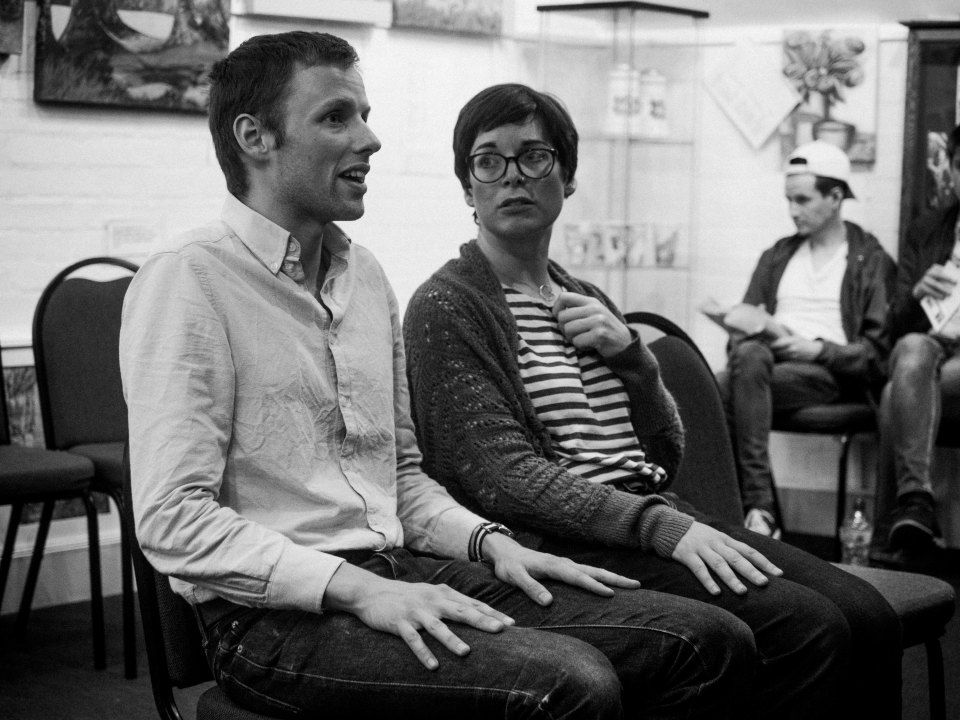
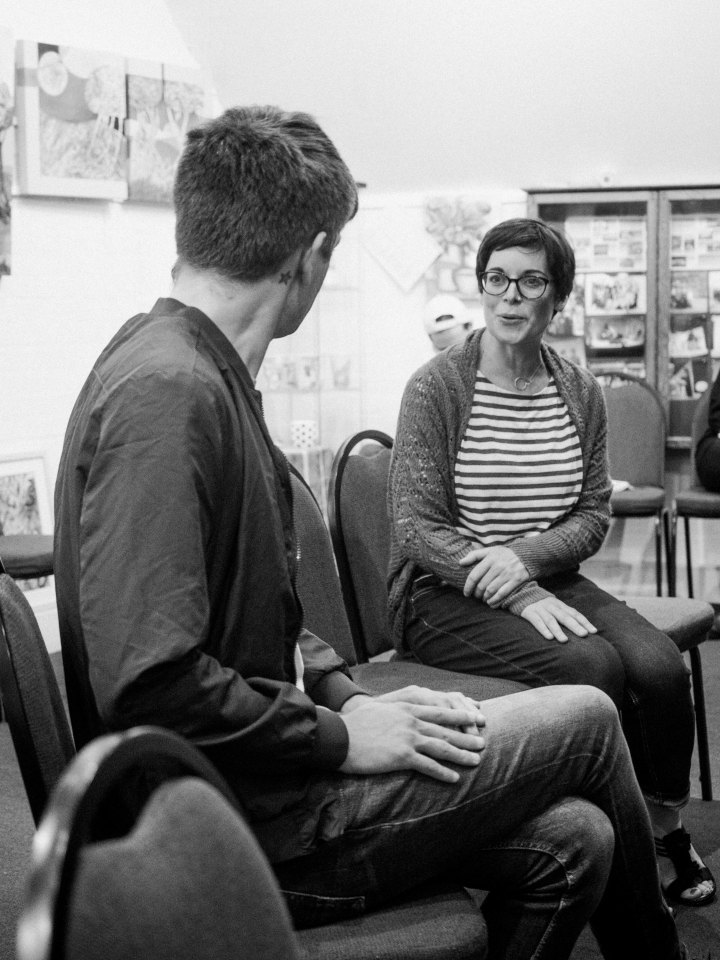
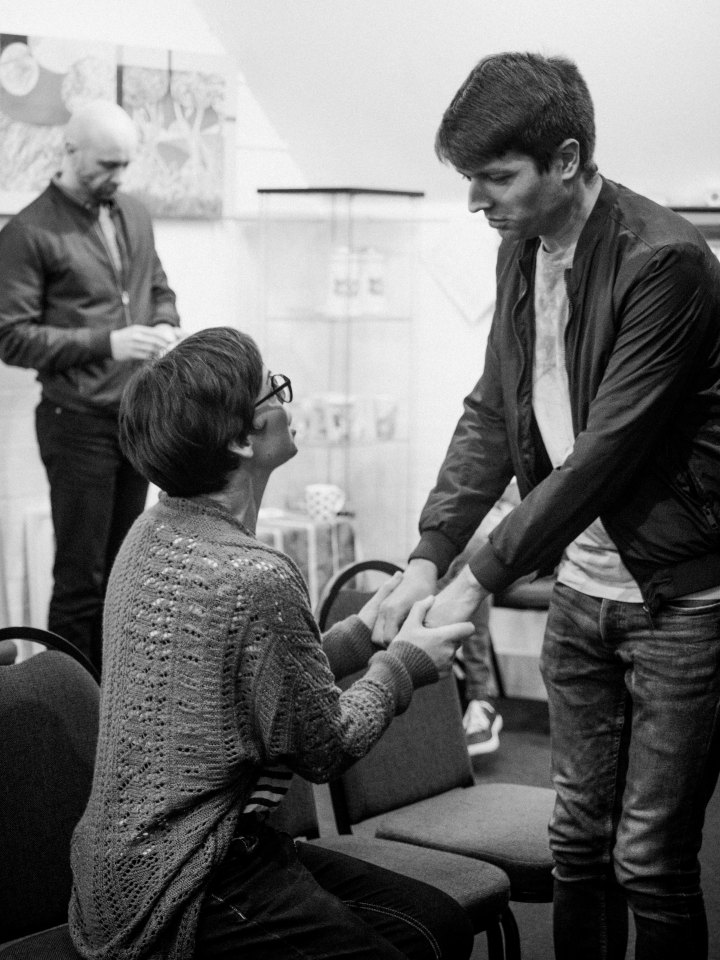
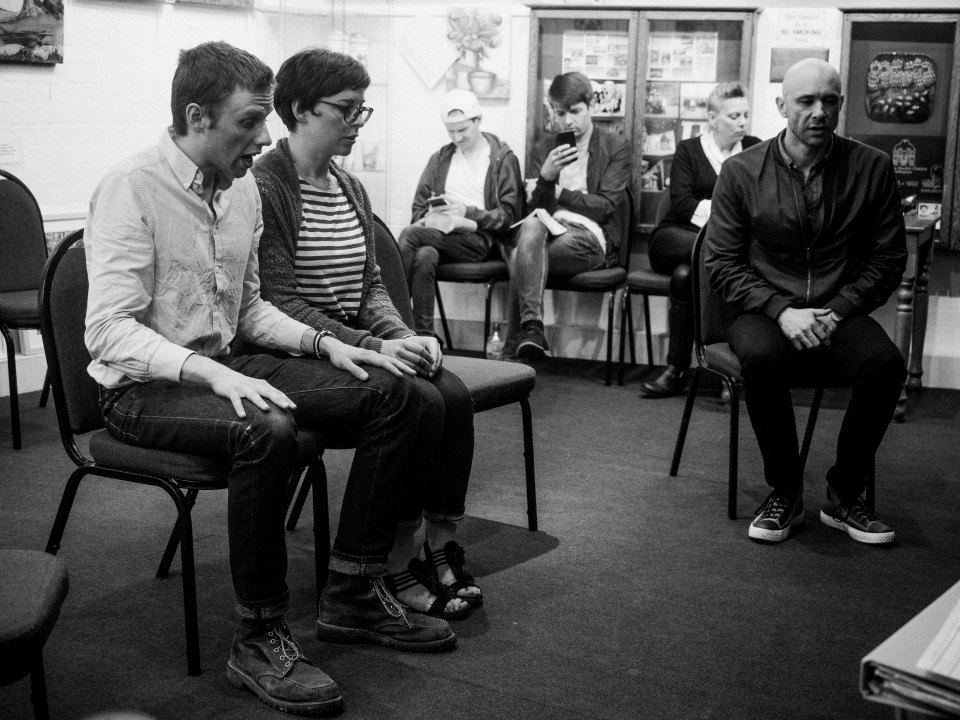
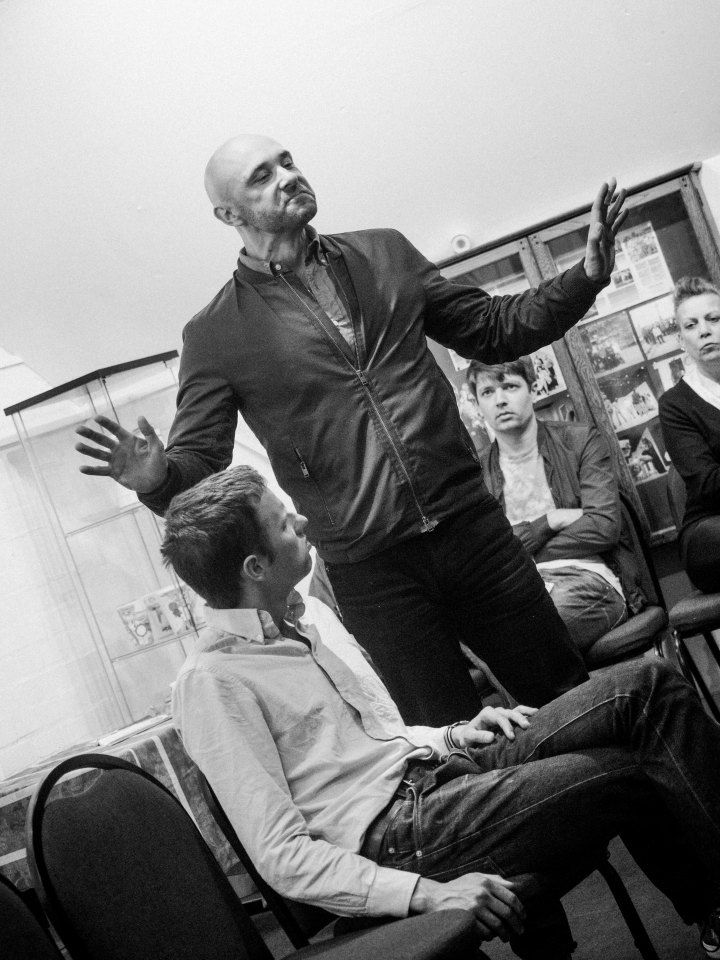
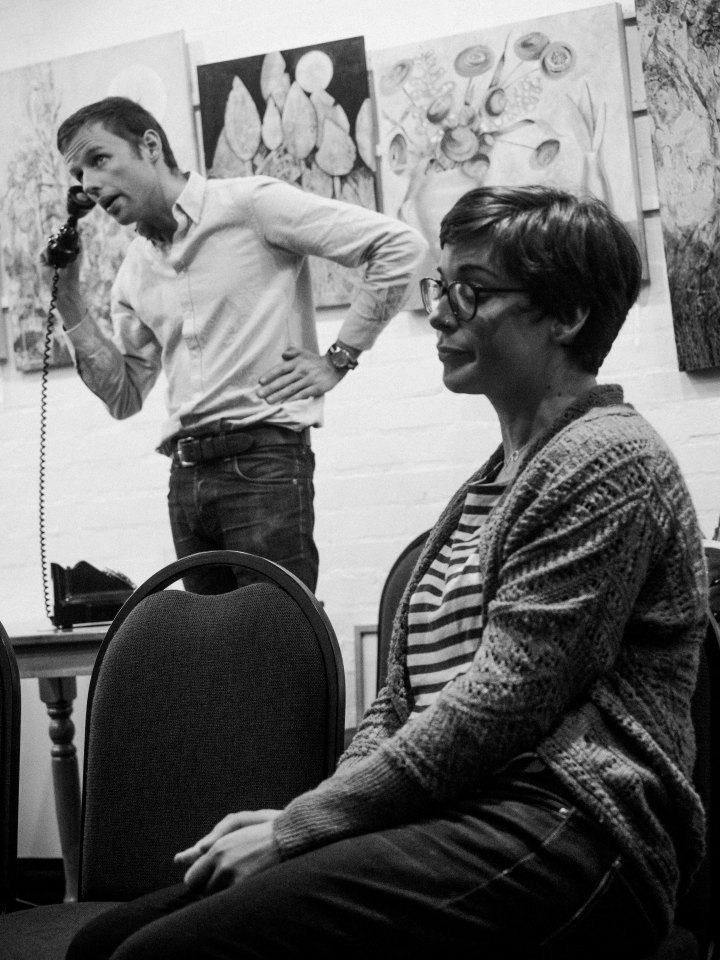
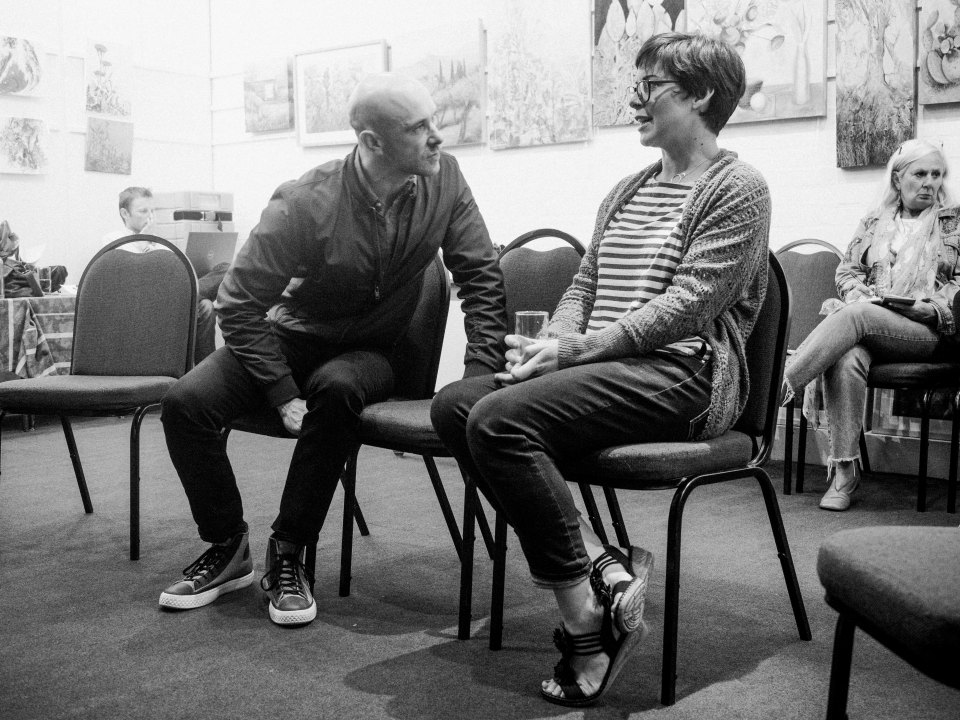
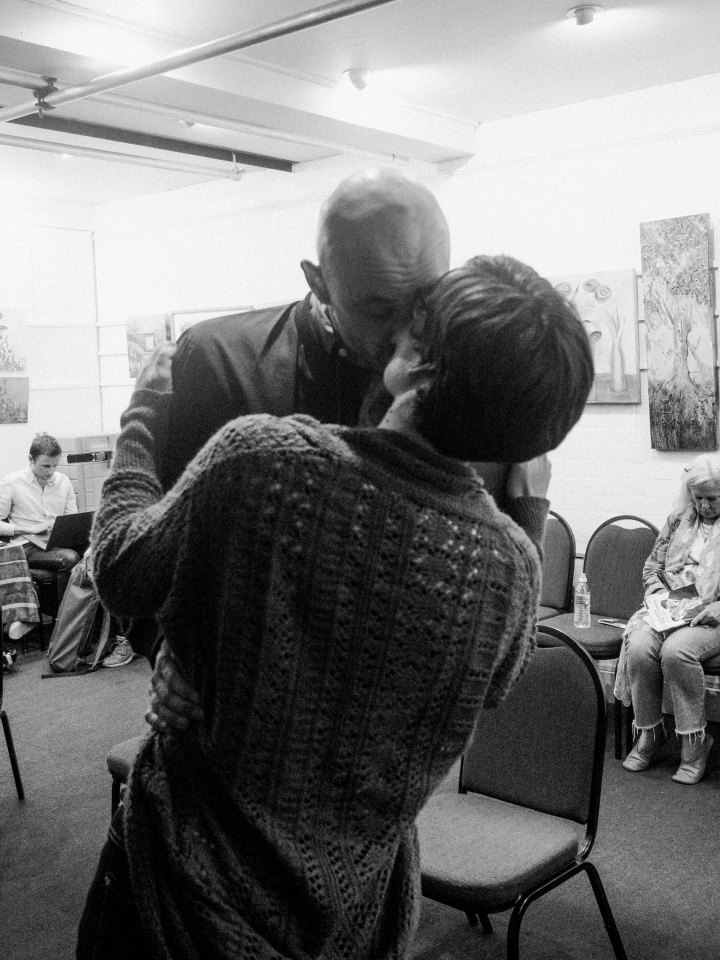
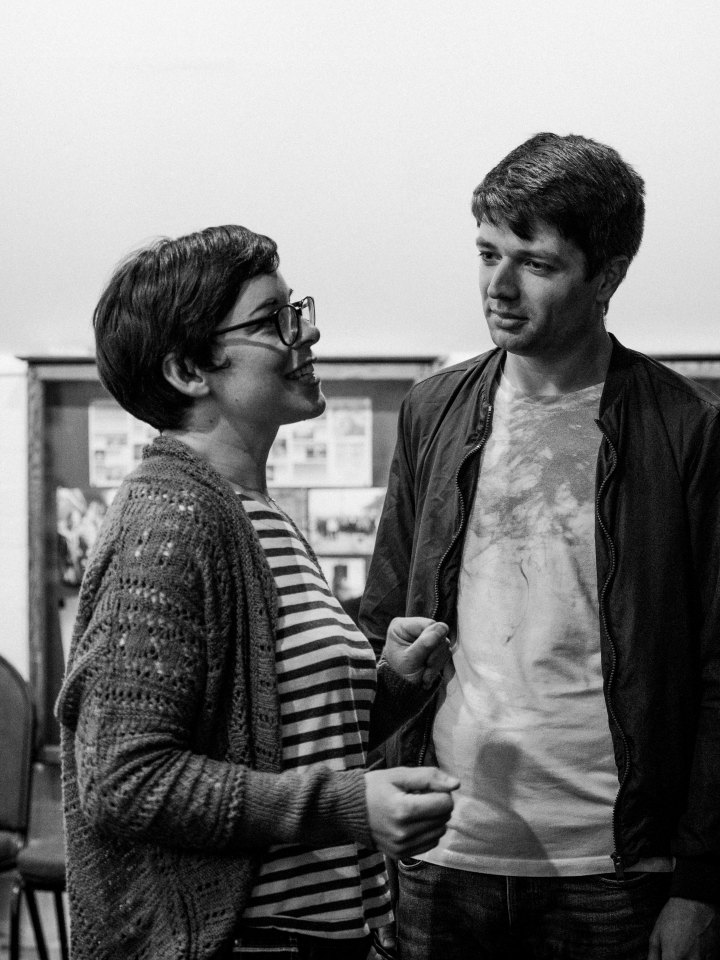
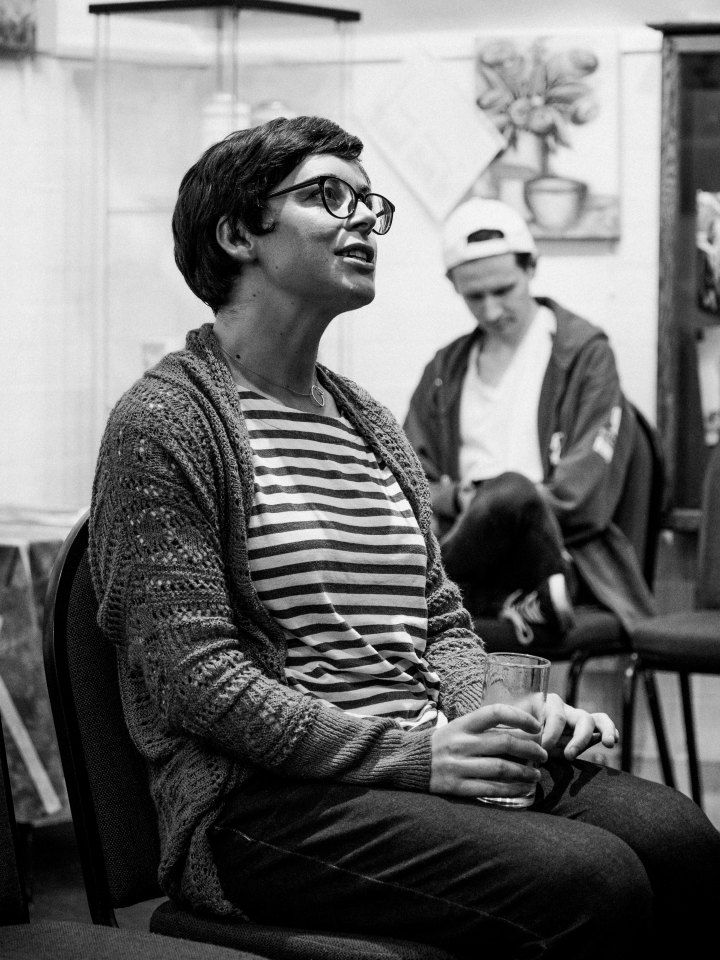
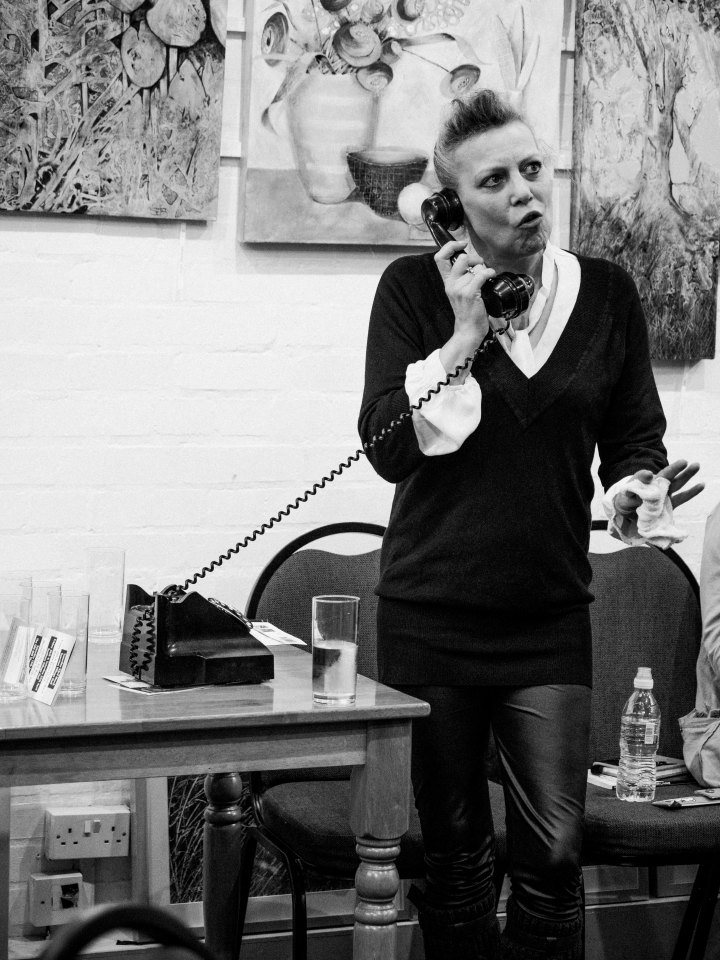

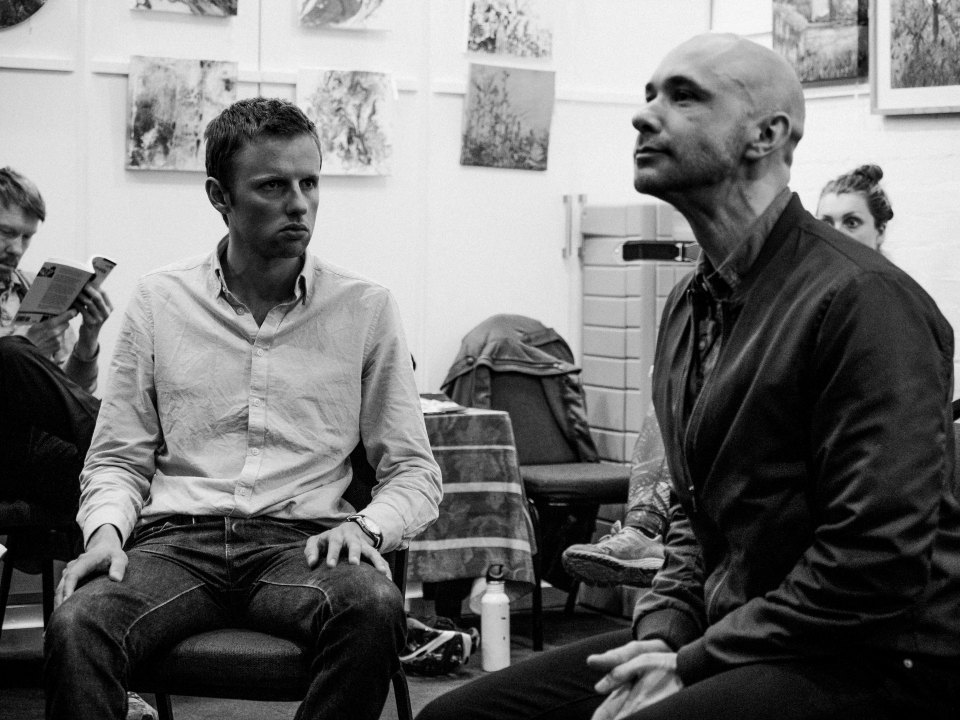
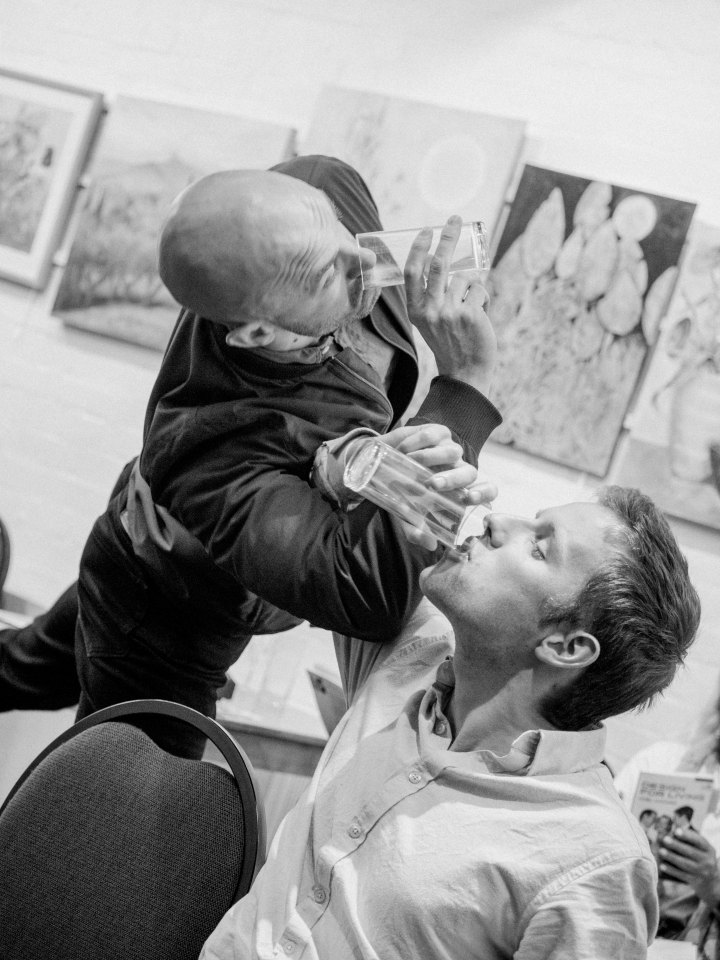
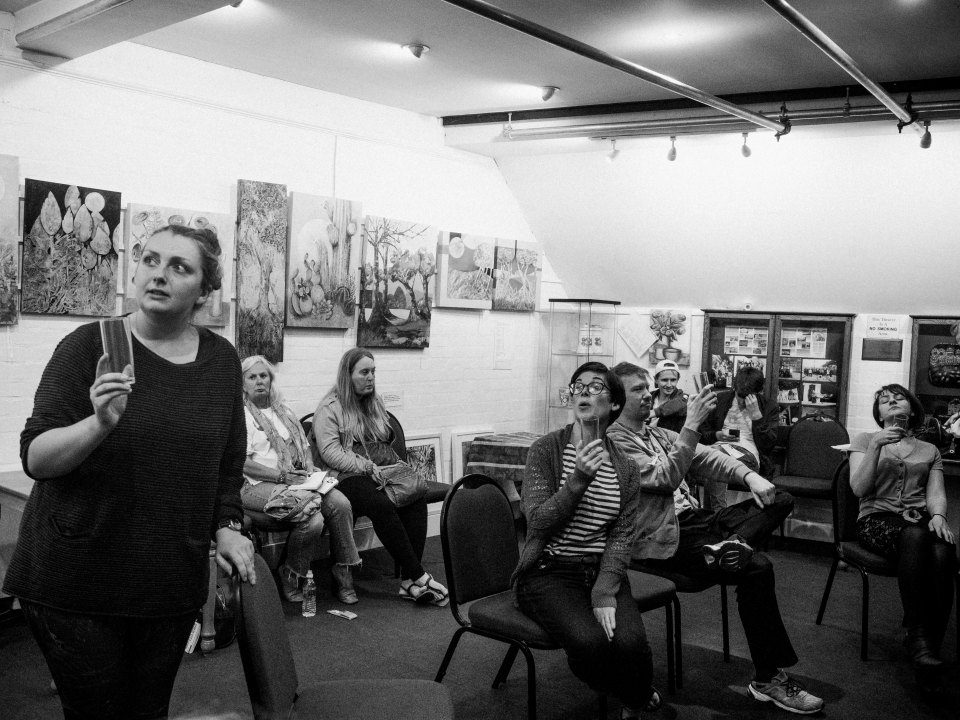
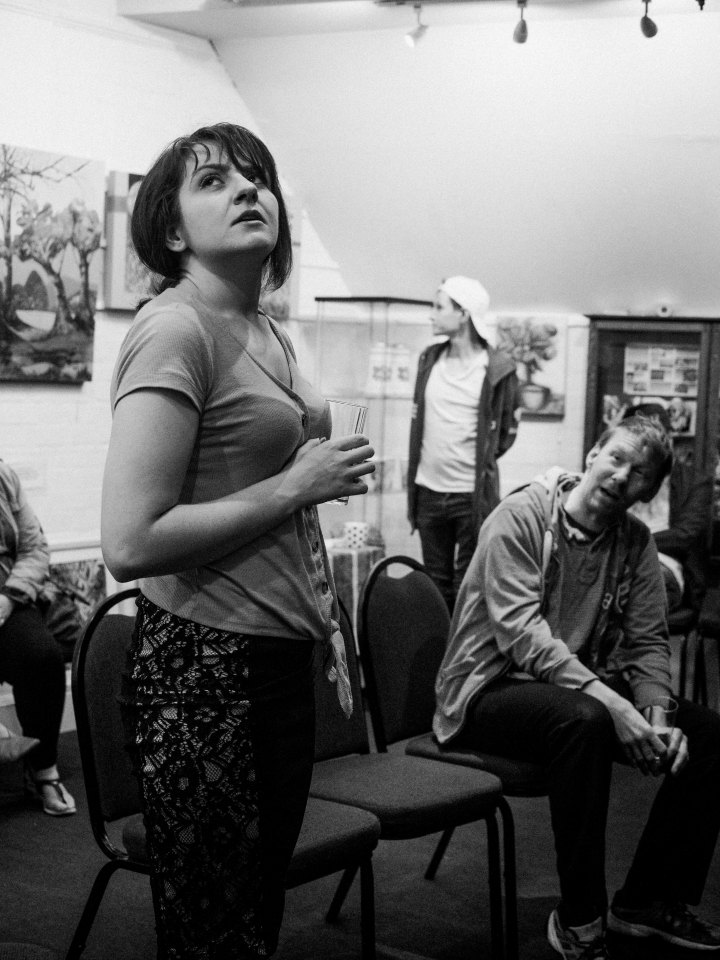
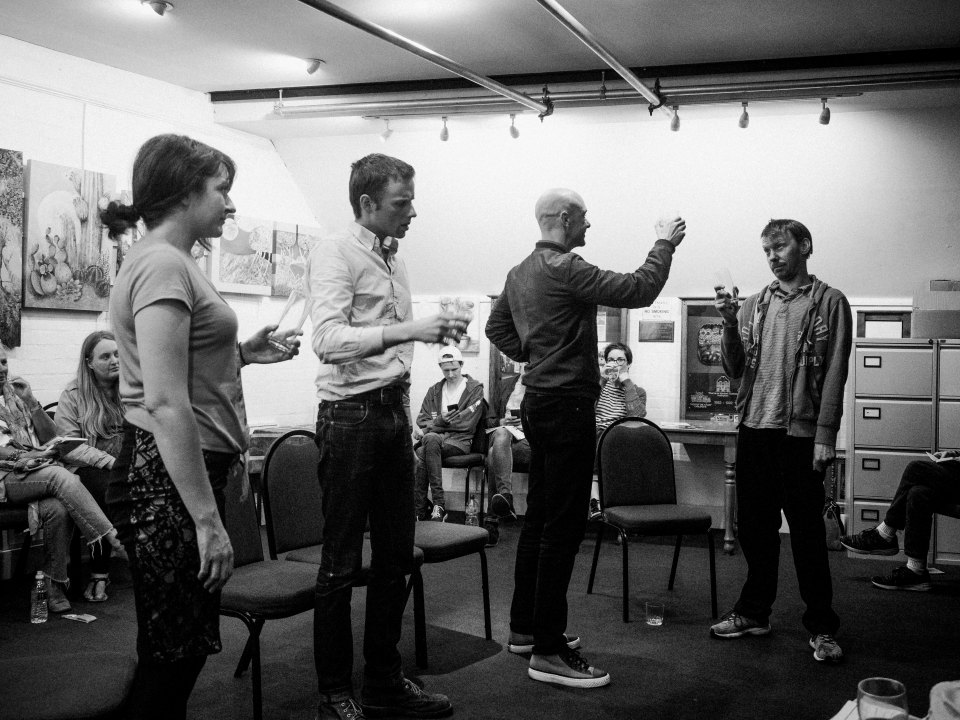
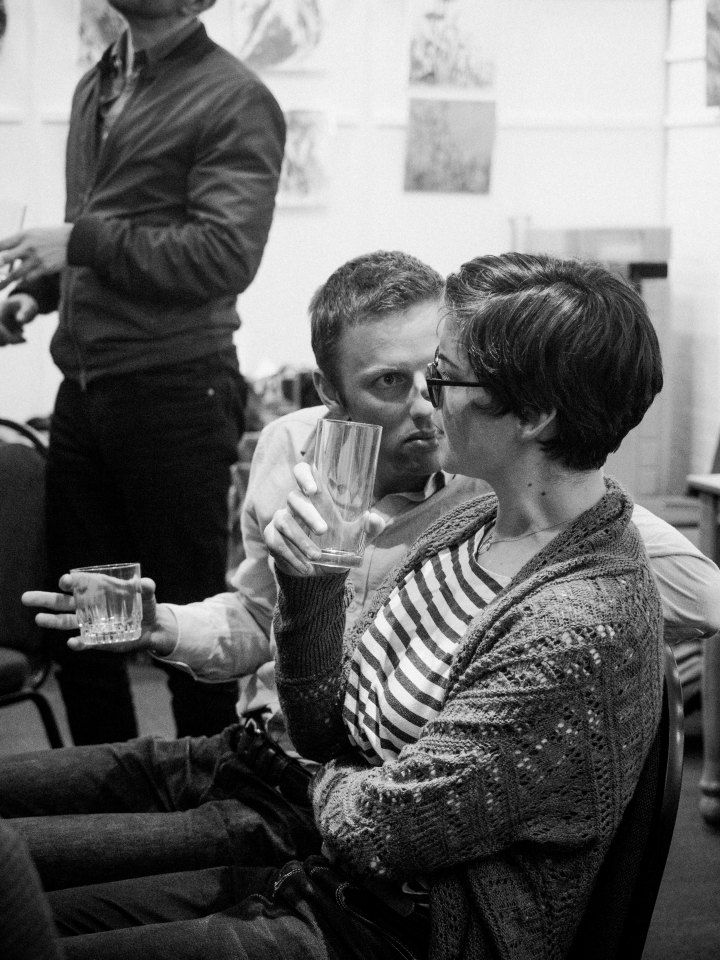
CAST
Gilda
Kathryn Edwards
Otto
Paul Spruce
Leo
John Halstead
Ernest
Matthew Finkel
Miss Hodge
Órla Godfrey-Carter
Henry Carver
James Whitby
Helen Carver
Emma Bradley
Grace Torrence
Charlotte Thomas
Matthew
James Hastings
There are no items to display
"Design For Living" by Noel Coward
Nottingham Lace Market Theatre
From 1930s bohemian Paris to the dizzying heights of Manhattan society, a tempestuous love triangle unravels between interior designer, Gilda, playwright Leo and artist Otto - three people unashamedly and passionately in love with each other. They are trapped in what Coward called 'a three-sided erotic hodge podge.'
With Coward's trademark piquant style, this lively, funny but also atypical play looks at dazzling, egotistical creatures and their self-destructive dependence on each other. Exploring themes of bisexuality, celebrity, success and self-obsession, Design for Living is a stylish and scandalous comedy which was initially banned in the UK. A play of it's time.
Kathryn Edwards (Gilda), brings out the independence and confidence in our protagonist, as well as great style in everything that Gilda does and wears. She also shows Gilda's underlying unhappiness at not being seen as an equal in the male dominated business and romance world of the period.
Matthew Finkel (Ernest) provides a lot of the comedy with his facial expressions and some very cutting and acidic lines, with just a touch of the Alan Carr about the character. Ernest's final tirade and flounce from the stage deserves a round of applause on it's own.
Paul Spruce (Otto) had just the right amount of camp for the character, and I really enjoyed the subtle hints of the relationship between Otto and Leo which we discover pre dates Otto and Gilda.Lovely and carefree performance.
John Halstead (Leo) comes across as a slightly spoilt and sulky teenager in this menage a trois, but also shows an excitability in the character, which is typical of Coward's characters.
Órla Godfrey-Carter (Miss Hodge) is also typical of Coward's characters. A lovely comic role, a seemingly over-worked house maid who doesn't seem to do a lot and complains bitterly about the jobs she is given. The role is lower class, working for the upper class which will always have that comedy element and well executed by Órla.
James Whitby (Henry Carver), Emma Bradley (Helen Carver) and Charlotte Thomas (Grace Torrence) are Gilda's guests in Manhattan.
James Hastings (Matthew), Gilda's man servant, who, although only had a small part, really made an impression with his smiley, leering and lustful attention aimed at both Leo and Otto. Coward writes camp so well and James brings this character to life.
Directed by Dan Maddison, I loved the monochrome set and costumes for the characters which really brought the feel of an old black and white movie feel of the early 1930's to life on stage. I also loved the flow of this play because there were swathes of script balanced with small gaps which gave you time to catch your breath.
The set, designed by Max Bromley oozed style and the Paris, London, Manhattan sets were simply done by change of furniture and landmarks depicted on the back wall.
Lighting Design by David Billen and Sound Design by Gareth Morris, who was busy stage managing the play, so the sound was operated by Sophie Owen.
The play oozes class and sophistication and that is reflected in the fashion of the day and these costumes were gorgeous, as was the make up and hair.
Coward's wit is as sharp and sparkling as ever in this play. A play that is very rarely seen performed, and a play of such liberalism and female empowerment, which was way ahead of it's time. All the subtle naughtiness of Coward's writing is at the fore, as is the wonderful campness.
As I previously touched on, the script is very wordy but all of the main characters delivered these swathes with great elan, never stumbling and with a completely natural delivery. It goes to show what hard work this cast and crew have put in to this piece of theatre, and the rewards were richly reaped on opening night.
Read the original article here.
A ménage ă-trois of two men and a woman - Design for Living at the Lace Market Theatre
When it premiered male homosexual activity was a criminal offence
It’s small wonder that Noël Coward’s Design for Living didn’t enjoy all that much exposure after it premiered in 1933. At a time when male homosexual activity was still a criminal offence, the play featured an on-off ménage ă-trois of two men and a woman.
In London, it didn’t attract an actual ban, but it wasn’t produced there till 1939. Nowadays its content doesn’t shock but, given the right director (here it’s Dan Madison) and actors, it can certainly entertain.
Kathryn Edwards turns in a stand-out performance as Gilda, a beautiful, young interior designer, who happens to be in love with two men separately: Otto, an artist (an excellent Paul Spruce) and Leo, a playwright (John Halstead, again excellent). Each of these men, besides loving each other, also loves Gilda.
The smaller parts: some American friends, the servants, and so on, are all well played. There are no weaknesses.
Over three acts, set in flats in Paris, London and New York, Gilda also re-entangles herself with a friend, Ernest (Matthew Finkel, in another fine performance), who’s also well acquainted with the others, but as a romantic rival.
It’s a static, very wordy play. But since it’s so well crafted, and the dialogue so often witty, acerbic and full of sharp observation, it never drags. In short, it’s all unmistakably Noël Coward. There are even the trademark meta-theatrical touches, where Coward reminds audience and characters alike that this isn’t real-life; it’s a play.
Max Bromley’s set is a simple black and white delight, as are the matching black and white costumes, especially Gilda’s, which, besides looking great, successfully evoke the twenties and early thirties. The telephone doesn’t – it’s one of those heavy-looking fifties jobs, but no matter.
It would be entirely unsurprising if this one generates a hefty week’s box office.
Read the original article here.










